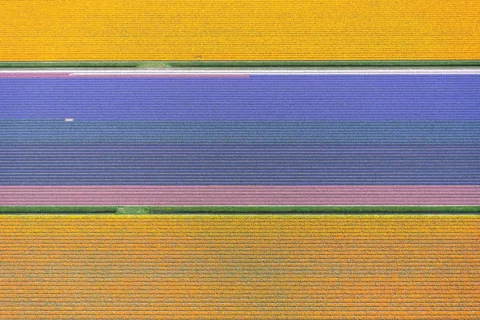The second-best pension system in the world. That's what we have in the Netherlands, according to the annually published Mercer CFA Institute Global Pension Index, which includes 43 countries. Are other countries doing so badly? Every two weeks, for twenty weeks, we delve into the system of a specific country. Episode four: the Netherlands' most popular summer holiday destination, France.
In la douce France, they enjoy their retirement the longest. Men on average 22.7 years, women 26.9 years. By comparison, in the Netherlands the figures are 18.6 and 23.4 years respectively. The fact that the French are living longer is mainly due to the low retirement age: on average, French people stop working at age 60.8. And the French would like to keep it that way. The government wanted to raise the retirement age from 62 to 64 a few years ago, but the unions blocked this with weeks of strikes. In France, carrying out reforms is seen as political suicide, so few dare to get their fingers burned.
Macron
However, President Macron is not content with this, as pay-as-you-go pensions (where working people together pay for the old age of the pensioners) are now costing France a lot of money: 14 percent of the GDP. By comparison, in the Netherlands, the state pension (also financed on a pay-as-you-go basis) amounts to “only” 5.4 percent of GDP (to which we should add the premiums for the supplementary pension). This is unsustainable in a system that is almost entirely based on pay-as-you-go. Because France is ageing, the pensions of a growing group of pensioners have to be paid for by a shrinking group of working people. As far as sustainability is concerned, France occupies the 33rd place (out of 43 countries). This problem is much less acute in the Netherlands, because a large proportion of the total pension (the second pillar) is based on capital funding. In this case, the employee accrues his own pension through a pension fund.
A thousand euros
In France, pensioners generally receive 50 percent of their average income through the first pillar - i.e., government pensions. The government wants everyone who has worked a full career to be entitled to at least 1,000 euros a month in retirement.
In France, a French citizen with an average income receives 73.6 percent of that average income as a net pension (see chart under “1”). If you earn twice the average wage, you can look forward to 64.4 percent of that total wage as a net pension (see chart under “2”). And if you earn one and a half times the average income, you will accrue a total pension pot of 14.4 years' salary (see chart under “1.5”).



